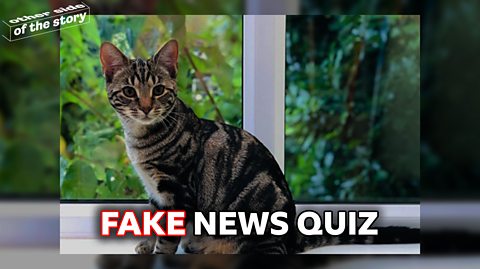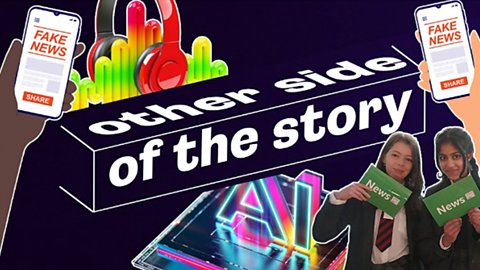In March 2020, life as we know it changed after Covid sent the world into lockdown.
Five years on, we caught up with a group of young people who were in school and college in 2020 to find out how the pandemic impacted their use of social media, and how it affected their relationship with news.
Tasha was in her final year of sixth form when the lockdown was announced. She told us that she started spending more time on social media as a result, and this changed how she felt about the media:
"On social media there were a lot of people catastrophising about the whole Covid situation”
“At the time when I looked on social media there were a lot of people catastrophising about the whole Covid situation and being like ‘oh, this is it, this is the end of the world’ and stuff like that.”
She added: “I think because of the amount of time I was spending on social media it made me more sceptical of what was fake and what was real news…it made me wiser at sorting out ‘ok, this is a headline that’s intended to be a bit fearmongering'…It definitely altered my way of thinking in terms of how I read the news and keep updated about things.”
At the time when I looked on social media, there was just a lot of people catastrophising about the whole Covid situation. So being like, 'oh, this is it, the end of the world' and stuff like that. I think because of the amount of time that I was spending on social media, it made me more sceptical of what was fake and what was real news. And I think because of the amount of time I did spend on there, it made me wiser in like sorting out, okay, this is a headline that intends to be a bit fearmongering and stuff like that and this is headline that is meant to be more informational or informative, So…it definitely altered my way of thinking in terms of the how I read the news and keep updated about things.
"Everyone was speculating and everyone was taking one piece of a story and adding to it”
Jess, who was in Year 10 in March 2020, told us that she also started questioning whether what she was reading was true.
“The media's what you usually go to to find out what's happening in the world, and the majority of the time you do just assume it to be the truth. When there’s tens of thousands of stories floating around, whether that’s on the TV, on the news, on your phone, on a video that you’re just scrolling past you automatically start questioning it.
“Everyone was speculating and everyone was taking one piece of a story and adding to it, or taking away from it and then you end up with a completely different story to what it started off with.”
Jess would then use other sources to try to work out if what she was reading was true. She told us: “I’d look at the media to see if they [were] broadcasting it and if the story is as big…or if it’s just one video on your phone that’s got a few hundred likes.”
At the end of the day, the media is what you usually go to, to find out what's happening in the world. And majority of the time you do just assume it to be the truth. And when there's tens of thousands of stories floating around, whether that's on the TV, on the news, just on your phone, on a video that you just scrolling past, you automatically start questioning it, and it just makes you really wonder what's actually going on. So you don't really have, you feel like you don't know anything about Covid because instead of knowing what's going on with it, you know, a million things that might not even be true. Everyone was speculating, and everyone was taking one piece of a story and adding to it or taking away from it, and then you end up with a completely different story to what it started off with. Look at the media and see if they're broadcasting it, if the story is as big as what it is, or if it's just one video on your phone that's got a few hundred likes.
"It has changed my outlook on life”
Kevonte, who was in high school five years ago, said he found himself constantly scrolling through social media during lockdown.
He believes that the pandemic has had a lasting impact on his life: “It has changed my outlook on life. It is something that I could sit down and think back to as a very traumatic period of time of life. I never literally [thought I'd witness] the world come to a complete stop.”
Watch the full video to hear more young people talk about their experiences of the pandemic. Plus, find out the truth about three of the most popular claims that were made about Covid.
It has changed my outlook on life. It is something that I could sit down and think back to. It was a very traumatic period of time, of life. Like, I never literally witnessed the world come to a complete stop. You're like, what is real? What is fake? What to believe? What do I do? Do I take the vaccine? Do I not take it? What do I do to stay safe? It's like you feel like you're losing your mind. If I see it from the BBC news or any of those news channels, it is real and it's a valid source.

Not sure if the news you’re seeing on social media is true or false? Can you always tell if the things you see online are real or fake? Learn how to get the other side of the story with our quizzes, videos and explainers.


